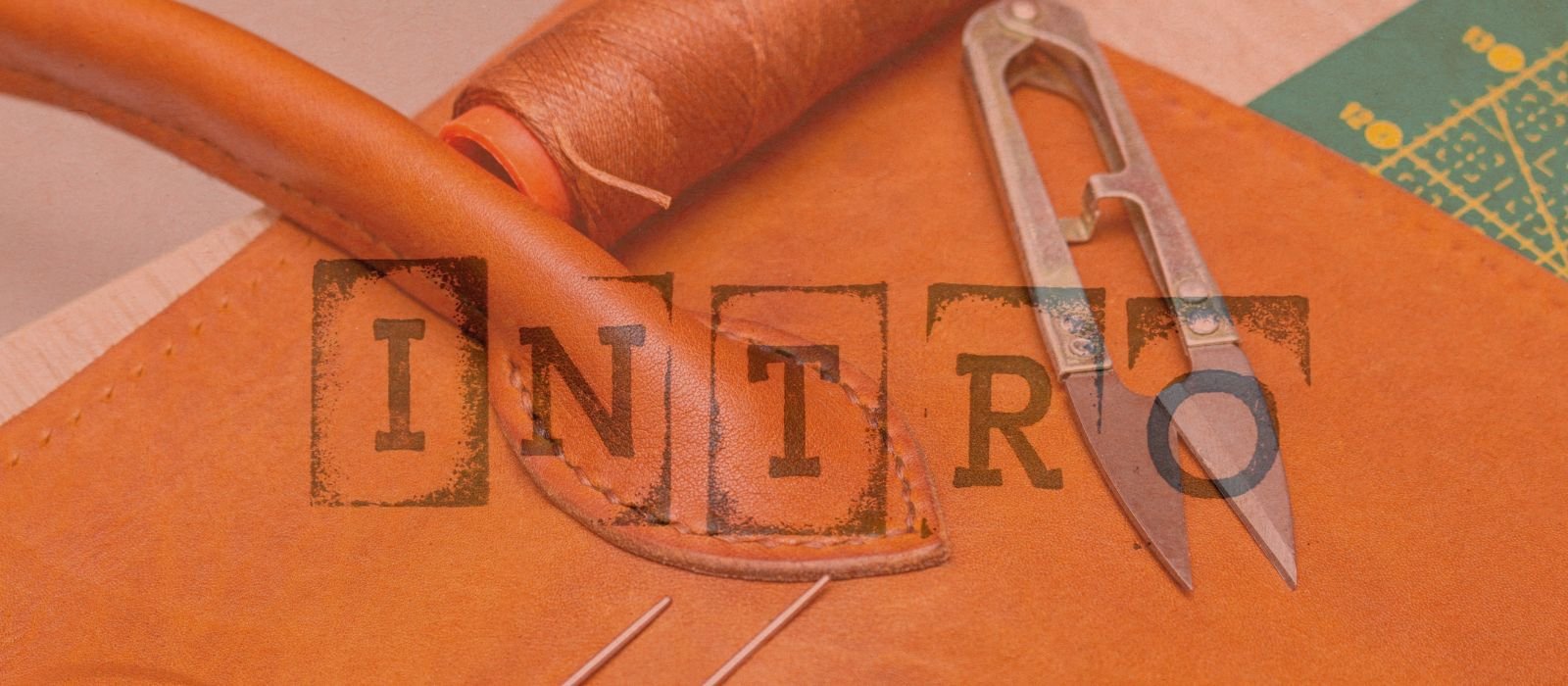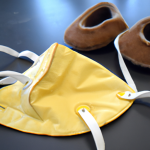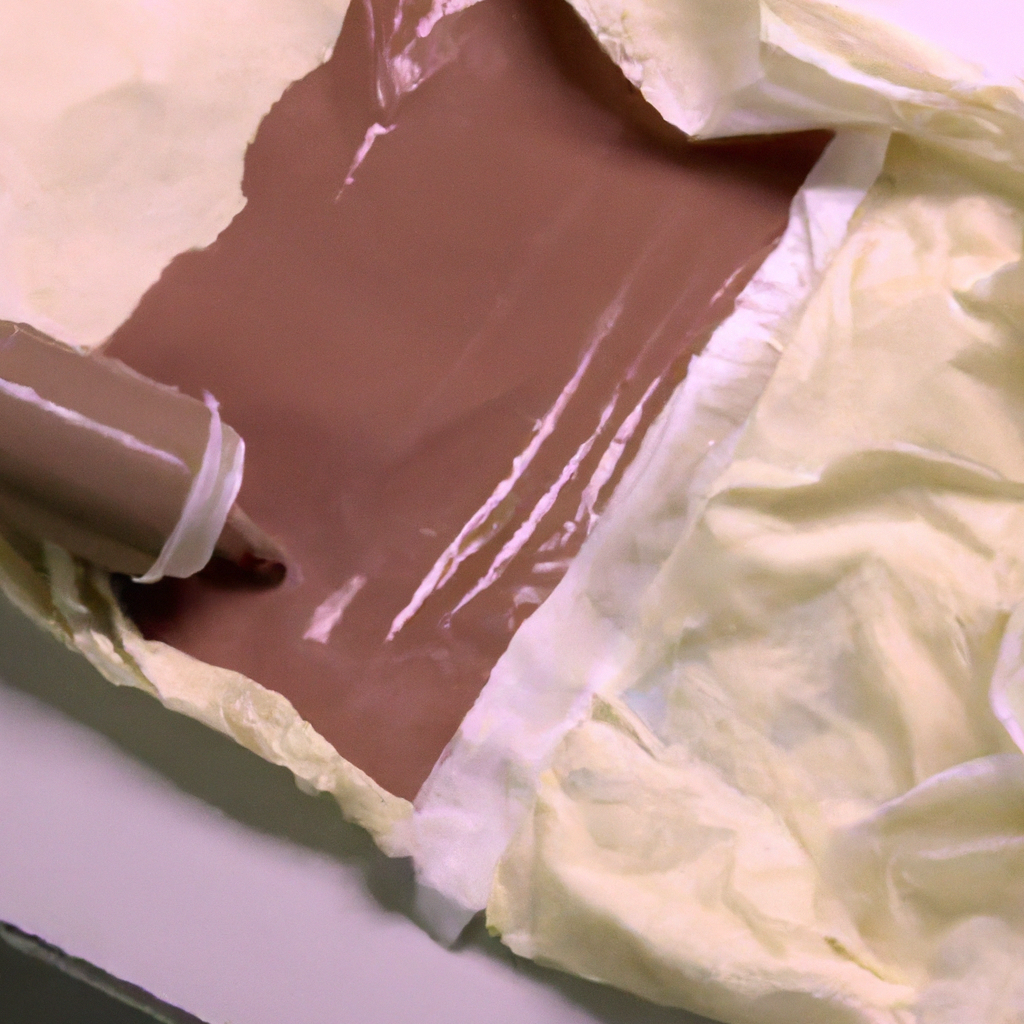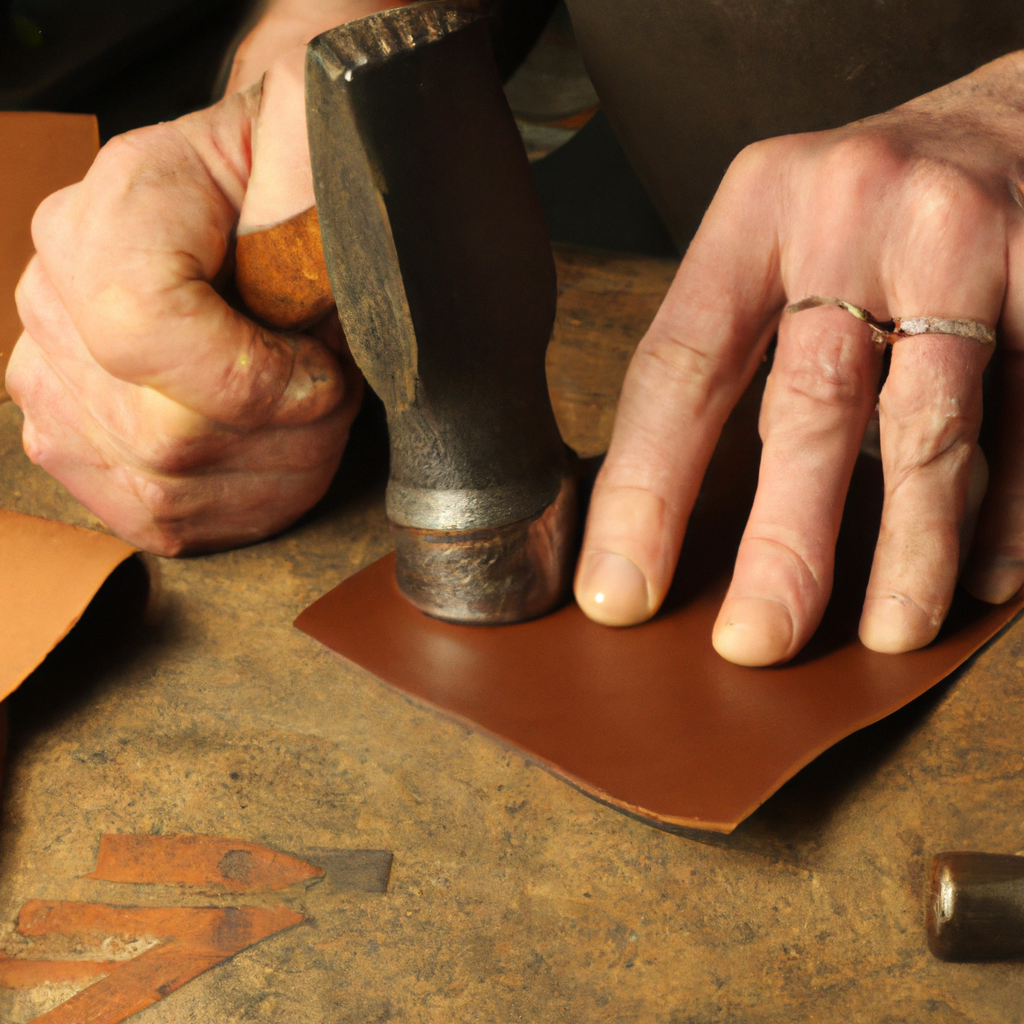Have you ever wondered about the legal and licensing requirements that leather goods businesses need to adhere to? In this article, we will explore the various regulations and obligations that apply to the world of leather goods. From obtaining the necessary licenses to ensuring compliance with safety standards, we will cover all the essential aspects that every leather goods business owner should be aware of. Whether you are an established leather goods business or considering starting one, this article will provide you with valuable insights and information to help you navigate the legal landscape and ensure the success of your venture. So, let’s dive into the world of legal requirements for leather goods businesses and explore how you can stay on the right side of the law while pursuing your passion.

Business Registration
Choose a business structure
When starting a leather goods business, it is important to choose the right business structure. You have several options to consider, such as sole proprietorship, partnership, corporation, or limited liability company (LLC). Each structure has its advantages and disadvantages, so it’s crucial to evaluate your specific needs and goals.
Sole proprietorship is the simplest and most common business structure, where you are the sole owner and responsible for all aspects of the business. Partnerships involve two or more individuals sharing ownership, responsibility, and profits. Corporations and LLCs offer limited liability protection, meaning your personal assets are separate from the business’s liabilities.
Register your business with the relevant authorities
After deciding on a business structure, you must register your leather goods business with the relevant authorities. This step ensures that your business is recognized legally and allows you to operate without any legal issues.
The specific registration requirements vary depending on your location, but typically involve obtaining a business license, registering your business name, and obtaining any necessary tax identification numbers. It is essential to research the registration process and requirements for your specific jurisdiction to ensure compliance with all regulations.
Trade Name Registration
Check availability of trade name
Choosing the right trade name for your leather goods business is crucial in establishing your brand identity. Before finalizing your trade name, it is important to check its availability to ensure that there are no conflicts with existing businesses.
You can conduct a name availability search through the relevant government agency responsible for business registrations. This search will reveal whether any other businesses are using a similar name or if the desired name is already taken. It is advisable to choose a unique and distinct trade name to avoid confusion and potential legal issues in the future.
Register your trade name
Once you have confirmed the availability of your desired trade name, you should proceed with registering it. Registering your trade name provides legal protection and prevents others from using the same name for their businesses.
The process of registering a trade name varies by jurisdiction, but it generally involves submitting an application and paying a registration fee. Some jurisdictions may also require you to publish a notice of your trade name registration in a local newspaper. Be sure to comply with all the necessary steps to secure the exclusive rights to your trade name.
Business Permits and Licenses
Research required permits and licenses
Operating a leather goods business may require obtaining certain permits and licenses to comply with local regulations. These requirements are in place to ensure the safety of your products, protect the environment, and maintain ethical business practices.
Research the specific permits and licenses that apply to your leather goods business. Common examples include a general business license, sales tax permit, and zoning permit. Depending on the nature of your business, you may also need specialized permits, such as a license to handle hazardous materials or a permit for manufacturing operations.
Apply for necessary permits and licenses
Once you have identified the required permits and licenses, it is crucial to complete the necessary application processes. Contact the appropriate government agencies or regulatory bodies to obtain the application forms and understand the specific requirements.
Ensure that all the necessary documentation is prepared accurately and submit it within the designated timeframe. Keep in mind that some permits may require periodic renewals, so you should stay updated on any expiration dates and renewal requirements to maintain compliance with regulations.

Sales Tax and VAT
Understand sales tax and VAT regulations
When selling leather goods, you need to familiarize yourself with sales tax and value-added tax (VAT) regulations applicable in your jurisdiction. Sales tax and VAT are consumption taxes imposed on the sale of goods and services.
Sales tax is typically imposed at the state or local level in the United States, while VAT is prevalent in many other countries. These taxes are calculated as a percentage of the total sales value and may vary depending on the jurisdiction and the type of goods being sold.
Determine if your products are taxable
Not all leather goods may be subject to sales tax or VAT. In some jurisdictions, certain products may be exempt from taxation or subject to reduced rates. It is important to determine whether your leather goods fall within the taxable category and, if so, at what rate.
Consult with a tax professional or the relevant tax authority to understand the specific rules and regulations governing sales tax or VAT for your leather goods business. Complying with these regulations avoids potential penalties and ensures accurate tax collection and reporting.
Register for sales tax or VAT
If your leather goods are subject to sales tax or VAT, you must register with the appropriate tax authorities. Failure to register and collect the required taxes may result in legal consequences and financial penalties.
Contact the tax authority in your jurisdiction to inquire about the registration process. You will likely need to provide information about your business, such as the legal entity structure, trade name, address, expected sales volume, and other relevant details. It is essential to keep accurate records of all sales and remit the collected taxes within the specified timeframes.
Trademark and Intellectual Property
Protect your brand through trademarks
As a leather goods business, it is important to protect your brand and intellectual property rights. Trademarks play a crucial role in safeguarding your brand identity, distinguishing your products from competitors, and building customer trust.
Consider registering your brand name, logo, and any other unique identifying elements as trademarks. This process involves submitting an application to the appropriate intellectual property office and paying the required fees. Once approved, your trademarks provide legal protection and exclusive rights to use the registered marks in connection with your leather goods business.
Respect intellectual property rights
While protecting your own intellectual property is essential, it is equally important to respect the intellectual property rights of others. Avoid infringing on copyrighted designs, patented technologies, or trademarked logos owned by other individuals or businesses.
When sourcing materials or collaborating with designers or manufacturers, ensure that you have the necessary rights and permissions to use their intellectual property. Conduct thorough research and, if needed, consult with a legal professional specializing in intellectual property law to avoid any potential legal disputes and protect your business’s reputation.
Product Safety Regulations
Ensure compliance with product safety standards
As a leather goods business, ensuring the safety of your products is of utmost importance. Your products should meet relevant product safety standards and undergo necessary testing to ensure they do not pose any risks to consumers.
Research the product safety regulations applicable to your specific type of leather goods. These regulations may govern aspects such as labeling requirements, prohibited substances, flammability, and other safety considerations. Compliance with these standards protects both consumers and your business from potential legal liabilities.
Follow labeling and packaging requirements
In addition to product safety standards, there may be specific labeling and packaging requirements that you must adhere to. These requirements often include information such as product composition, country of origin, care instructions, and warnings or precautions.
Ensure that all labeling and packaging materials are accurate, clear, and prominently displayed on your leather goods. Non-compliance with these requirements can lead to penalties, recalls, and damage to your brand reputation. Stay updated on any changes to labeling and packaging regulations to maintain compliance throughout your business operations.
Environmental Regulations
Follow regulations on waste disposal
Operating a leather goods business entails certain environmental responsibilities. It is crucial to comply with waste disposal regulations to minimize the negative impact your operations may have on the environment.
Research and understand the regulations regarding proper waste disposal, including recycling, hazardous waste management, and any specific requirements related to leather production. Implement appropriate waste management practices within your business, such as separating recyclables, disposing of hazardous materials correctly, and minimizing waste generation.
Adhere to environmental conservation practices
In addition to waste disposal, embracing environmental conservation practices can benefit both your business and the environment. Consider incorporating sustainable materials and production methods into your leather goods business.
This may involve sourcing environmentally friendly materials, reducing energy consumption, and implementing eco-friendly manufacturing processes. By adopting sustainable practices, you contribute to environmental conservation efforts while appealing to conscious consumers who prioritize ethical and environmentally responsible products.
Employment and Labor Laws
Understand employment laws
When your leather goods business grows and requires hiring employees, it is essential to understand and comply with applicable employment laws. These laws aim to protect employees’ rights and regulate various aspects of the employer-employee relationship.
Key areas to focus on include minimum wage requirements, working hour regulations, employment contracts, workplace safety standards, and anti-discrimination laws. Familiarize yourself with the specific employment laws in your jurisdiction to ensure fair treatment of your employees and minimize the risk of legal disputes.
Comply with minimum wage and working hour laws
Minimum wage and working hour laws dictate the minimum compensation employees must receive and the maximum hours they can work. Ensure that you adhere to these regulations by paying your employees at least the legally mandated minimum wage and providing appropriate overtime compensation when applicable.
Implement measures to accurately track employee working hours and maintain records in accordance with legal requirements. Additionally, establish fair and transparent employment contracts that outline terms and conditions of employment, including compensation, working hours, and benefits.
Import and Export Regulations
Research import and export regulations
If your leather goods business involves importing or exporting products, it is crucial to research and comply with the applicable import and export regulations. Failure to meet these requirements can lead to delays, confiscation of goods, significant fines, or even legal consequences.
Determine the specific regulations and documentation needed for importing and exporting leather goods, such as customs declarations, tariffs, import permits, or certificates of origin. Familiarize yourself with any trade agreements or restrictions that may impact your business and stay informed about any changes in import/export regulations.
Obtain necessary permits and certifications
To engage in import or export activities, you may need to obtain certain permits, licenses, or certifications. These requirements vary by country and product type, so it is important to complete the necessary procedures to ensure smooth international trade operations.
Contact the appropriate customs authorities or trade organizations to understand the specific permits and certifications you need for your leather goods business. Complying with import and export regulations not only ensures legal compliance but also instills confidence in your customers and business partners.
How Do Safety Precautions Impact Legal and Licensing Requirements for Leather Goods Businesses?
When it comes to leather goods businesses, implementing proper safety precautions for leather crafting is crucial not only for the well-being of employees and customers but also for meeting legal and licensing requirements. Ensuring a safe working environment can help businesses avoid legal issues and maintain their licenses to operate.
Online Sales and E-commerce
Comply with online sales regulations
If you plan to sell your leather goods online or engage in e-commerce activities, it is crucial to comply with online sales regulations. These regulations govern aspects such as consumer rights, online marketing, privacy protection, and electronic transactions.
Research the applicable online sales regulations in your jurisdiction, including any specific requirements for online businesses. This may include providing clear product descriptions, accurate pricing information, transparent refund and return policies, and clear terms and conditions of sale. Ensure that your website or online platform is user-friendly, secure, and complies with all necessary legal and technical requirements.
Ensure data protection and privacy compliance
The protection of customer data and privacy is paramount in online sales and e-commerce. Take appropriate measures to secure customer information and comply with data protection and privacy laws.
Implement robust data security protocols, including encryption and secure payment gateways, to safeguard sensitive customer data. Clearly communicate your privacy policy to customers and obtain consent for collecting, storing, or processing their personal information. Regularly review and update your data protection practices to adapt to changing regulations and protect your customers’ trust.
In conclusion, starting and running a leather goods business involves navigating various legal and licensing requirements. From choosing the right business structure and registering your trade name to complying with product safety standards and employment laws, it is essential to thoroughly research and understand the regulations applicable in your jurisdiction. By complying with all legal obligations and maintaining ethical business practices, you can establish a successful and sustainable leather goods business.








